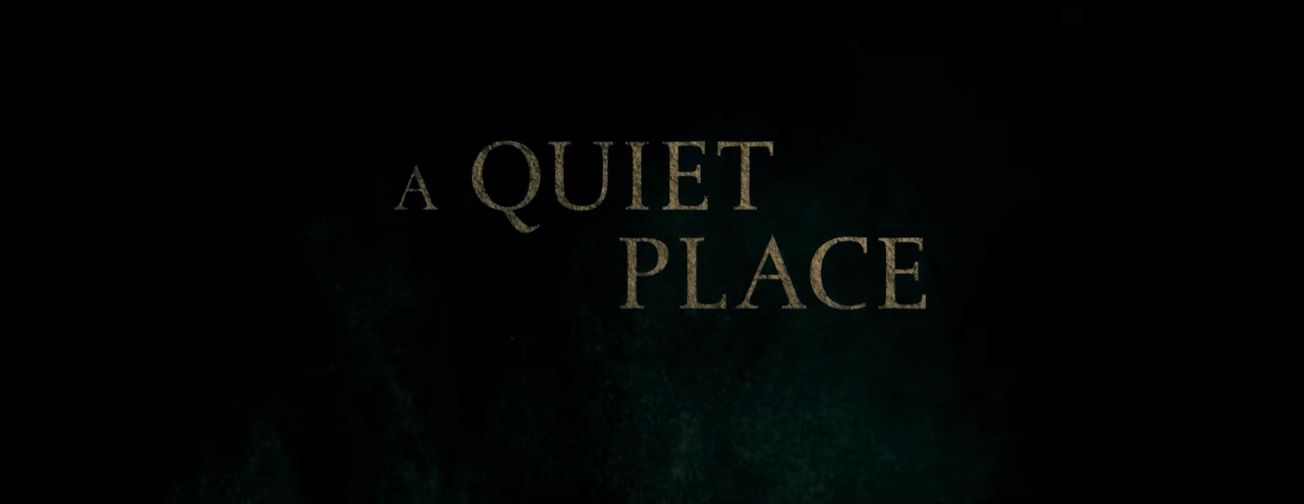John Krasinski's debut horror film, with wife Emily Blunt, proves to be more than an apocolyptic survival film dealing with the fears and challenges of parenthood and family.
In a post-apocalyptic world, where blind, predatory creatures with sharpened hearing roam the planet, every cough, broken twig underfoot, or even the slightest whisper can potentially endanger your very existence.
A Quiet Place is thrilling and relentless. But what sets it apart from many other horror films, is its emotional depth. A family who have been forced to learn sign language to communicate with their deaf daughter are tasked with surviving amidst an ecological disaster that has resulted in the demise of the human race.
Rather boringly, we are again presented with a heteronormative, nuclear family in which the father is the eternal protector and mother’s role is essentially to give birth. Arguably the father’s ineffectuality and the female-empowering ending may undo this criticism, but in my view the film on the whole presents a rather conservative view of family life.
Limited as it may be, the film expertly explores the parental perspective. Disguised as a Hollywood horror, A Quiet Place is primarily concerned with the trials of parenthood, playing on the worries and fears shared by those who risk bringing life into the world.
Within ten minutes of the film’s beginning, Beau, a toddler, is killed by the predators. Every parent’s worst fear, that of the premature death of one of their young, becomes an immediate reality. The audience is forced to consider the balancing act of protecting your offspring from potential hazards while allowing them the space to develop and grow, even if this involves transgression.
Sound is followed by silence – rather than vice versa – as we wait for its repercussions, transfixed in a state of palpable tension.
Jumping forward in time by over a year, the family are living a humble life in a farmhouse. The father, Lee (John Krasinski), attempts to discover the weakness of the reptilian predators that robbed his family of a young boy, while his wife, Eve (Emily Blunt) prepares to give birth to a child. One of the noisiest human activities is subsequently thrown into a film where sound is usually followed by death.
Yet if we remove the CGI and superficial glitz of this high budget picture, we are again left with a blunt truth. The complexities of giving birth can potentially result in both the death of the mother and the baby. The film again therefore transcends the category of horror, becoming deeply, emotionally affecting.
The fact remains, that A Quiet Place is still undoubtedly a horror film, yet one that is as innovative technically as it is with its narrative, as seen in the way Krasinski toys with the established formula of the jump scare.
Traditionally, silence is followed by something designed to put fear in the minds of the audience. Rather than following this method, the film itself is made a predominantly silent space which iconoclastically reverses horror conventions. Sound is followed by silence – rather than vice versa – as we wait for its repercussions, transfixed in a state of palpable tension.
Me watching #AQuietPlace. pic.twitter.com/kPO4Iyedwf
— MLB GIFS (@MLBGIFs) April 7, 2018
One lasting impression of A Quiet Place is that, in a similar manner to its contemporary, The Shape of Water, it seeks to redefine disability as essentially enabling. Millicent Simmonds plays Regan, the eldest child of the family who, like the actress playing her, is hearing-impaired. After gifting Beau with a noisy toy rocket which ultimately leads to his death, Regan comes to blame herself for the accident, believing this is also her father’s view.
However, she overcomes this guilt as the film progresses, growing as a person and becoming the effective heroine of the film. In a world where acute hearing has enabled the dominance of one species and the subsequent fall of humanity, a deaf child provides the alternative necessary to reassert humanity’s ascendancy. The final message of the film is therefore, that talent and ingenuity can emanate from adversity.
Photo credits:Youtube / Paramount Pictures









